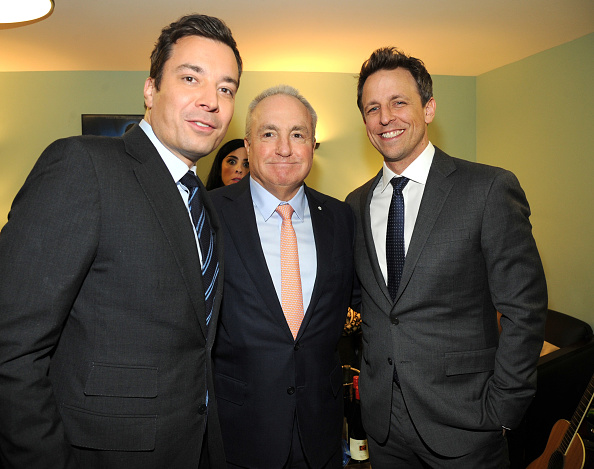By Dustin Rowles | TV | September 27, 2023

As of today, the WGA Writers’ strike is officially over. Cool! Now what? Now, Hollywood slowly begins to move back into production, starting with the late-night shows — the Strike Force 5 Guys — and the daytime talk shows, including Drew Barrymore, Kelly Clarkson, Jennifer Hudson, etc. These are great venues to promote projects. Unfortunately, the people best suited to promote those projects, in most cases, are the actors, who are still on strike. There are also fewer projects to promote because of the strikes. In fact, while writing can begin again on television and film projects, shooting cannot because the AMPTP has not agreed with SAG.
The two sides have not even yet begun negotiating. So, when do we get our Abbott Elementary episodes back? In this week’s Podjiba podcast, WGA- member Dan Hamamura guessed — if the AMPTP actually settled with SAG in the next few weeks — we’re still looking at March or late February. It will take several weeks for the writers to get scripts in shape, and even if SAG comes to terms with the studios, shooting is not likely to begin until after the holidays. Add on editing, and late February/early March looks likely.
This is why Max held True Detective until January. Television is going to be a wasteland between January and March as productions resume, although the streamers at least have some series that are close to wrapping up that can probably run earlier (Hacks, as I recall, was nearly done shooting).
When television finally does come back, there will also be fewer television shows. That’s because the WGA got much of what they wanted from the deal, which is great! For better or worse, however, the studios are not likely to increase their overall spending so much as they will cut back on the number of shows they will air. That’s not necessarily a bad thing: There are way more shows than any of us can watch right now. Unfortunately, it may mean fewer working writers.
However, those writers who are working will be compensated significantly better. Pay will increase handsomely, and so will residuals, especially those foreign residuals on streamers (those are up 76 percent). Writers will also be rewarded with bonus residuals for shows that perform well, which means the studios will have to be slightly more transparent. These residuals will be based on the percentage of a streaming network’s subscribers who watch a show, which presumably means that someone — the WGA, anyway — will know how television shows fare against each other within the same streaming service. Bonus residuals kick in if a series is watched by 20 percent of domestic subscribers within the first 90 days. I have no idea how many streaming series fit into that category.
The writers also made gains on minimum writers’ rooms, which will be based on the episode orders. For shows that have been greenlit with six or fewer episodes, studios are required to employ at least three writers and three writer-producers; five writers and three writer-producers for shows with seven to 12 episodes; and six writers and three writer-producers for shows with more than 13 episodes.
Another biggie is AI. Here, the writers gained major concessions. The gist is that the AI-generated material cannot be used as a source or to undermine a writer’s credit; writers are also allowed to use AI to aid in writing scripts but cannot be compelled to do so by the studios (alas, this does not prevent studios from hiring writers more amenable to using AI).
It’s all good news! In terms of residuals and AI, it should also provide a decent framework for negotiating with SAG-AFTRA. Negotiations with SAG may begin as soon as next week, according to Deadline.